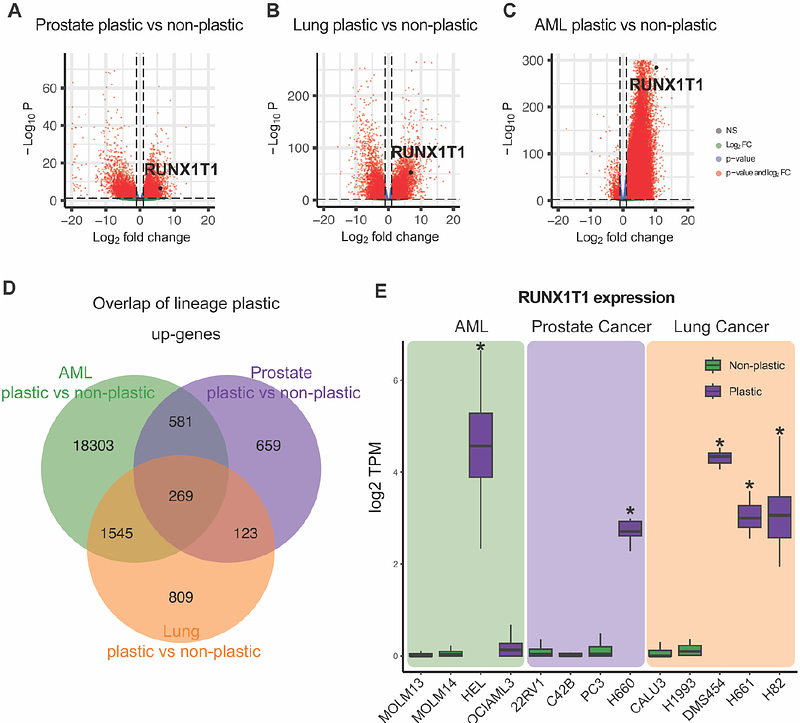Pan-cancer Analysis Identified Ectopic RUNX1T1 Associated with Lineage Plasticity

Pan-cancer Analysis Identified Ectopic RUNX1T1 Associated with Lineage Plasticity
Jiang, Y.; Cheng, S.; Kim, I. Y.; Deng, S.; Mu, P.
AbstractCancer remains a leading cause of death worldwide, with lineage plasticity emerging as a hallmark that drives therapy resistance and tumor progression, allowing cancer cells to rapidly alter their identity and evade targeted therapies. Although various genomic and transcriptomic aberrations correlate with lineage plasticity, the lack of pan-cancer gene markers quantifying lineage plasticity has limited its utility as a predictive biomarker. Homeobox (HOX) genes encode a family of transcription factors that play critical roles in embryonic development and tissue identity by establishing distinct expression patterns, known as HOX codes, in specific cell lineages. Through comprehensive bioinformatic analysis of multi-omics data, including expression profiles of 39 HOX genes from over 80,000 RNA sequencing samples across 114 cancer types, we first demonstrated that HOX codes effectively represent the lineages of cancer cells. We then identified multiple lineage-plastic cancer subtypes by applying the calculated HOX codes. Specifically, we identified lineage-plastic tumor subtypes in prostate cancer, lung cancer, and acute myeloid leukemia (AML), which exhibit altered HOX codes compared to non-plastic subtypes. Downstream differential expression analysis revealed significantly elevated RUNX1T1 levels across all three lineage-plastic cancer types, which was further validated through bulk and single-cell RNA sequencing data derived from preclinical and clinical samples. Together, our findings provide a novel strategy for characterizing lineage plasticity in pan-cancer cells and suggest ectopic RUNX1T1 expression as a pan-cancer marker and critical mediator of lineage plasticity.